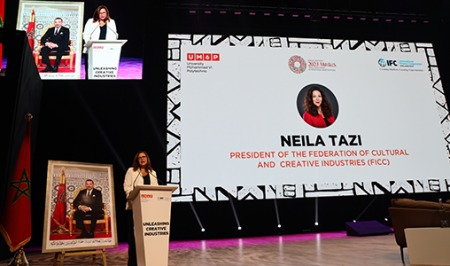


Participants recognized that CCIs, a source of employment for a young, innovative, and rapidly growing population, are particularly dynamic on the African continent, especially in the film, television, music, and fashion sectors. However, they have not yet fully realized their potential, they added.
The event's opening featured speeches by André Azoulay, Advisor to His Majesty the King, the Minister of Culture, Youth and Communication, Mohamed Mehdi Bensaid, as well as several prominent figures from the public and private sectors, particularly from the creative and cultural industries in Africa.
On this occasion, the International Finance Corporation's (IFC) regional vice-president for Africa, Sérgio Pimenta, emphasized that "although African creative industries generate 4.2 billion dollars a year, they occupy only a marginal place in the world market, accounting for only 2.9% of exports of creative products."
The IFC head noted that developing these industries will be necessary to help the African continent achieve its Sustainable Development Goals (SDGs).
According to Pimenta, Africa's film and audiovisual sectors have the potential, over the next three decades, to create 20 million jobs and generate $20 billion in annual revenues.
Bensaid for his part, asserted that Morocco has all the essential assets to become a driving force for the world's cultural and creative industries.
"We have a young population, a rich heritage, cultural pluralism, and an ability to manage difference and innovation, and above all, we have the ambition and the will," said the minister, adding that these industries are the means to transform culture and heritage into a dynamic force that creates wealth, jobs, and social ties.
Neila Tazi, President of the Moroccan Federation of Cultural and Creative Industries (FICC), considered that CCIs represent a productive sector in their own right, a "source of wealth for our territories," and substantial soft power for states, advocating for a strong and ambitious policy and vision in this regard.
Hicham El Habti, President of Mohammed VI Polytechnic University (UM6P), stressed that private investment is an essential component in the development and promotion of cultural and creative industries in Africa.
El Habti emphasized the need to encourage companies to invest in the creative industries, support start-ups, and explore new forms of public-private partnerships in this field.
Held in conjunction with the Annual Meetings of the World Bank Group and the International Monetary Fund, the conference was organized at the initiative of the International Finance Corporation (IFC) and UM6P.